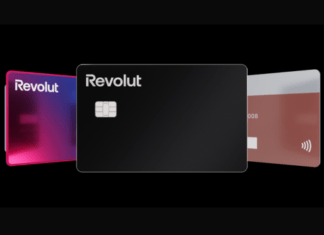Imagine being in a situation where one has to make a decision, but each option goes against something one believes in. Human resource professionals often find themselves dealing with such complex ethical dilemmas requiring them to choose between what is right and what is more ethically right.
For instance, an HR manager or a recruiter may be forced to place a false blind recruitment ad without naming the company, just to identify people who apply, so that they can be later sacked for being disloyal! Of course, HR professionals are aware that this may be an unethical way to identify potential quitters, but they are forced to resort to it for the benefit of the company.
From an organisational perspective, Anil Jalali, former CHRO, Capgemini, points out, “Ethical practices always make business sense contrary to what those with a myopic view may think. Some individuals may have a narrow viewpoint that ethics hinders profitability. In reality, however, ethical practices build trust, enhance reputation and also help attract and retain talented employees.”
“An HR professional should prioritise the long-term benefits of supporting employee well-being. By adopting an ethical stance, decisions can be made that not only align with the organisation’s values but also foster employee engagement and satisfaction.”
Sharad Sharma, CHRO, Pramerica Life Insurance
Business objectives & employee well-being
One of the most common ethical dilemmas faced by HR professionals revolves around balancing business objectives with the well-being and rights of employees.
There are other instances where the HR monitors an employee on social media and finds something objectionable. However, the HR person is in a dilemma whether to take any action or not. Taking action would uphold the company’s reputation but would also mean invading the employee’s privacy.
While striving for organisational success, HR professionals often face scenarios where their decisions appear to contradict the well-being and interests of employees. Striking a harmonious balance becomes crucial to maintaining a positive work environment and safeguarding the organisation’s reputation.
To address this dilemma, Sharad Sharma, CHRO, Pramerica Life Insurance, suggests, “An HR professional should prioritise the long-term benefits of supporting employee well-being. By adopting an ethical stance, decisions can be made that not only align with the organisation’s values but also foster employee engagement and satisfaction.”
Recalling his personal experience, Jalali says, “I stood with what was right for the employees not just as a flag bearer of morality and ethics but because it would actually benefit the organisation and prevent an employee experience disaster.”
Fair & unbiased practices
Another significant ethical dilemma faced by HR professionals revolves around ensuring fair and unbiased practices in recruitment, promotion and decision-making. HR professionals bear the responsibility of ensuring equal opportunities for all employees, free from discrimination or favouritism.
To overcome this dilemma, HR professionals should adopt a principle-based approach. By establishing transparent and objective criteria for evaluating candidates and making decisions, biases can be minimised. This approach fosters a culture of equal opportunity, where individuals are evaluated based on their qualifications and abilities rather than personal preferences.
Sharma highlights “the importance of basing decisions on data, logic, and reasoning rather than subjective judgments”. He feels, “By adhering to principled decision-making, HR professionals reduce the risk of bias and ensure equal treatment for all individuals. This approach strengthens the organisation’s reputation and builds trust among employees.”
“I stood with what was right for the employees not just as a flag bearer of morality and ethics but because it would actually benefit the organisation and prevent an employee experience disaster.”
Anil Jalali, former CHRO, Capgemini
Employee privacy
Safeguarding employee privacy presents a complex ethical challenge for HR professionals. Handling sensitive employee information with utmost care and discretion is crucial to protect individuals’ privacy rights while maintaining organisational compliance.
To address this dilemma, HR professionals must establish robust policies and protocols for handling employee data. These policies should define clear guidelines on access, storage and sharing of personal information. Respecting confidentiality and sharing information on a need-to-know basis ensures that employee privacy is safeguarded.
“HR professionals serve as the conscience keepers, responsible for employee privacy and making ethical decisions regarding data protection. By adhering to legal requirements, ensuring secure data-handling practices and communicating transparently with employees about data usage, HR professionals build trust and confidence amongst the workforce,” opines Sharma.
Conflict of interest
Conflict of interest poses a significant ethical dilemma, as personal biases or preferences can potentially influence decision-making processes. It is essential for HR professionals to maintain neutrality and objectivity, regardless of personal relationships or experiences.
To effectively manage this dilemma, HR professionals must approach decision-making with a focus on rationality and methodical analysis. It is crucial to prioritise the best interests of the organisation and its employees, over personal inclinations.
By consciously separating personal emotions from professional judgments, HR professionals can ensure fair and unbiased outcomes.
Sharma enumerates, “HR professionals must embrace their role as conscience keepers and refrain from making decisions based solely on emotions. Logic, reasoning and adherence to ethical principles must guide their decision-making processes”. According to him, “This approach minimises the risk of bias and ensures that decisions are made in the best interests of all stakeholders involved.”
Ethical dilemmas are a constant presence in the HR profession. It can be quite a challenge to find the right balance between business goals and the well-being and rights of employees. Therefore, HR professionals must approach these dilemmas with a principled mindset, valuing fairness, objectivity and respect.
By upholding ethical standards, HR professionals can contribute to a positive work environment, cultivate employee trust and safeguard the long-term success and reputation of the organisation.
Value our content... contribute towards our growth. Even a small contribution a month would be of great help for us.
Since eight years, we have been serving the industry through daily news and stories. Our content is free for all and we plan to keep it that way.
Support HRKatha. Pay Here (All it takes is a minute)




































